Vitamin K Rich Foods: Comprehensive Guide To K1 And K2
Good for your blood and bones – get your fill of this essential vitamin today!
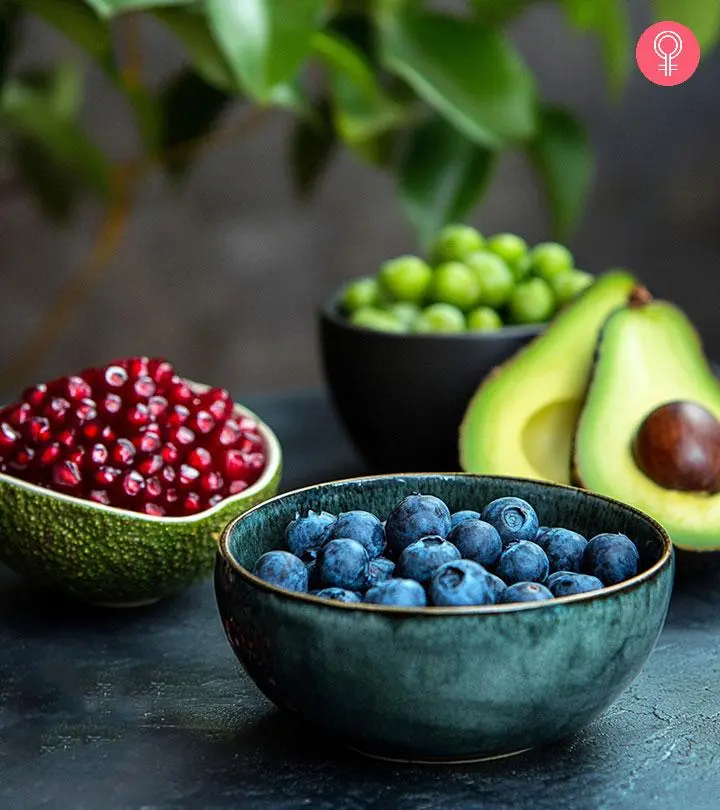
Image: Midjourney/ StyleCraze Design Team
In a fast-paced life, we often neglect the importance of a wholesome meal. Vitamins are paid the least attention. Vitamin K deficiency affects 50% of infants in the US, among other vitamin deficiencies. Including vitamin K-rich foods in daily diet can greatly help to combat this.
Although rare, this deficiency may cause excessive bleeding and hemorrhage even in adults.
If this deficiency is not corrected in infants, it may be fatal at times.
Hence, knowing which foods have this vitamin in abundance is necessary. This article will help you understand the importance of vitamin K and its science-backed benefits. You will also learn about the best dietary sources of vitamin K, recommended dosage, and other benefits of the vitamin. Scroll down to read further.
In This Article
Why Vitamin K – The Science
Your body needs vitamin K to produce a protein called prothrombin, which helps in blood clotting and bone metabolism. This vitamin can protect you from osteoporosis, boost your heart health, and help prevent cancer.
Probably, the most important aspect of vitamin K is how it can help treat vitamin K deficiency bleeding in infants. All infants are a higher risk of this condition until they are 4 to 6 months old, which is when they usually start eating regular foods, and the intestinal bacteria start synthesizing vitamin K as well. This is where vitamin K shots help – one shot given to the baby’s thigh can prevent the condition. Negligence in this aspect can be fatal (1).
There are three types of vitamin K, but only one of them is the most beneficial:
- Vitamin K1 (also called phylloquinone) is what you find naturally in green veggies. It enters your liver and aids blood clotting.
- Vitamin K2 (also called menaquinone) is found in animal and fermented products and is also produced by your gut bacteria. It goes to your bones and blood vessels and other tissues other than your liver.
- Vitamin K3 (also called menadione) is a synthetic form of the vitamin that is not recommended.

The most potent and effective form of vitamin K is K2. It is natural and not toxic even at 500 times the RDA. Vitamin K2 is made in our body and is also produced in fermented foods. In fact, increasing your vitamin K2 intake is the most recommended and safest way of fighting the deficiency.
Some reliable sources even dub vitamin K2 as the missing link between human diet and killer diseases.
There are different ways you can get all the vitamin K2 you need. Most foods contain vitamin K1, and we humans have the ability to partly convert this into vitamin K2. Vitamin K2, as we saw, is also produced by the gut bacteria. But unfortunately, both these methods are not as efficient if you are looking to get abundant levels of vitamin K2.
The graph below is taken from a research study published in Scientific Reports that was carried out to analyze the key nutritional effects of replacing all meat and beef only in the mean American diet (MAD) with protein-conserving, nutrient-dense plant-based alternative diets. According to the researchers, substituting all meat or beef with the suggested plant substitutes developed here is generally advantageous as there is increased delivery of nutrients. Thus, one can increase their intake of vitamin K with plant-based beef replacements.

Effects Of Replacing Meat-Based Foods With Plant-Based Ones
Source: https://idp.nature.com/authorize?response_type=cookie&client_id=grover&redirect_uri=https%3A%2F%2Fwww.nature.com%2Farticles%2Fs41598-019-46590-1%2Ffigures%2F1So, what’s the next best option? Consuming foods rich in vitamin K2.
Key Takeaways
- There are three types of vitamin K called K1, K2, and K3. K2 is the strongest, most natural, and effective type of vitamin K.
- Mayonnaise, miso, lamb, and beef liver are some good sources of vitamin K2.
- Vitamin K2 helps treat postmenopausal osteoporosis and improves the quality of bones.
- Vitamin K1’s anti-inflammatory properties can reduce oxidative stress and enhance cognitive function.
What Are The Foods Rich In Vitamin K2?
Since vitamin K2 is the best type of the vitamin, we’ll first discuss its food sources. Consuming foods rich in vitamin K can only add to the goodness, and we will check out those too – a little later.
1. Natto
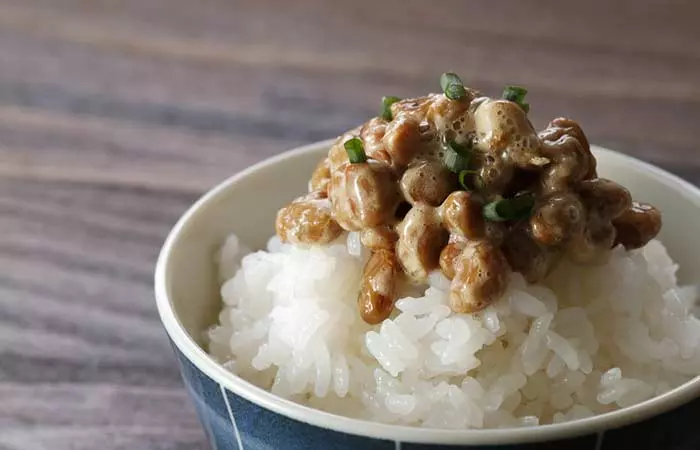
3.5 ounces (100 grams) of natto contains 1,000 mcg of vitamin K2, which is close to 10 times the RDA. You can ideally take 1 ounce of natto for the benefits.
This Japanese staple is made of fermented soybeans. It has a strong flavor and aroma, and most Westerners wouldn’t even have heard of it.
Studies show that intake of natto can increase vitamin K2 levels in individuals (2). Natto is also a good source of protein and fiber, which have their own benefits. While protein helps build the body, fiber aids digestion and promotes healthy weight loss.
How To Include In Your Diet
You can simply top your rice dishes with natto. This is one popular way of consuming it.
2. Miso
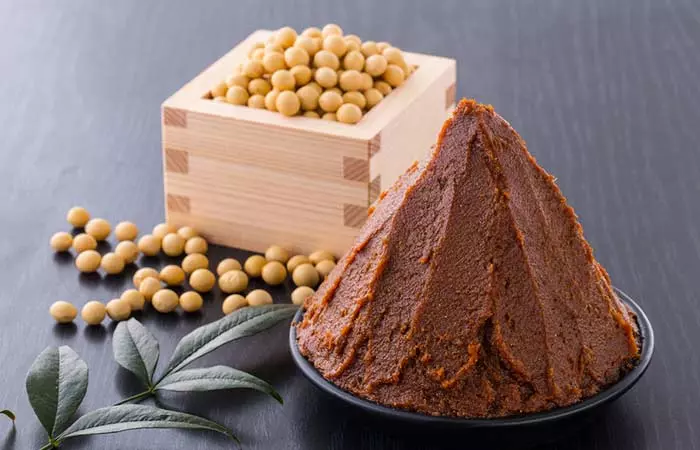
100 grams of miso contains 29.3 mcg of vitamin K2, which meets 37% of the RDA.
This is another popular Japanese dish that is made of fermented beans. Fermented foods like miso enhance the beneficial bacteria in the gut, thereby boosting absorption and the assimilation of nutrients. And these beneficial bacteria also synthesize vitamin K2, further enhancing the nutrient levels in the body.
How To Include In Your Diet
You can thicken your salads using miso – it works as a great salad dressing.
3. Mayonnaise
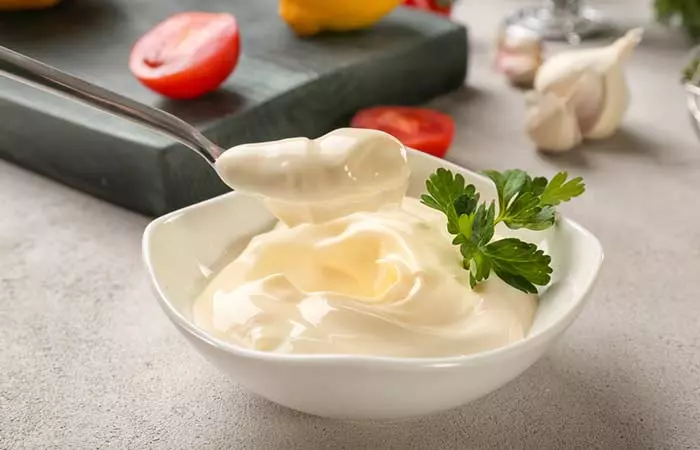
1 cup of whole-egg mayonnaise contains 197 mcg of vitamin K2, which meets 220% of the RDA.
This is the cholesterol-free variety, which also contains vitamin E that is good for the heart and skin. Vitamin E is also an antioxidant that protects the body from free radicals.
How To Include In Your Diet
Use mayonnaise as a bread spread for your morning breakfast.
4. Lamb
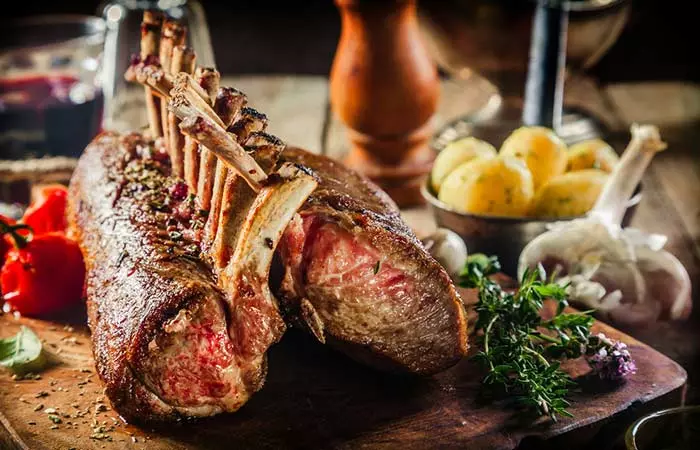
100 grams of lamb chops contain 5.3 mcg of vitamin K2, which meets 7% of the RDA.
Given that lamb is meat, it is rich in protein. It is a high-quality protein source as it contains all the essential amino acids. In addition to vitamin K2, lamb meat also contains good amounts of selenium and zinc, both of which take care of various bodily functions.
How To Include In Your Diet
You can include lamb meat chops in your dinner or lunch.
5. Beef Liver
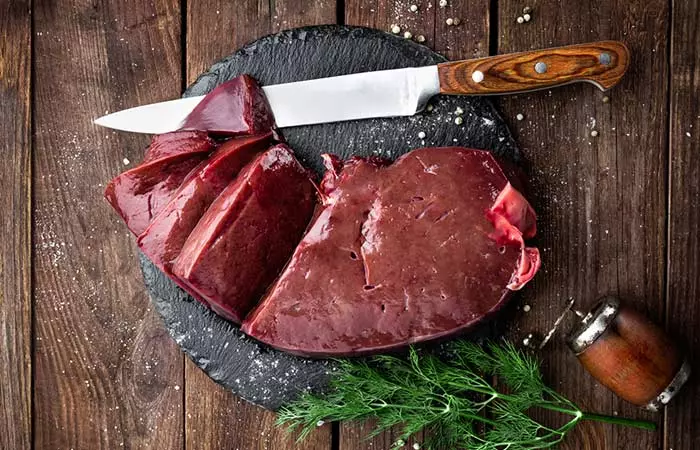
100 grams of beef liver contains 3.1 mcg of vitamin K2, which meets 4% of the RDA.
Apart from vitamin K, beef liver is an abundant source of iron. In fact, it is one of the best sources of the nutrient. Iron helps generate energy and aids the transportation of oxygen throughout your body.
Beef liver is also replete with vitamin A. Vitamin A promotes vision and skin health.
But be cautious about vitamin A. Since beef liver is rich in it, eating it every day can lead to vitamin A toxicity.
How To Include In Your Diet
You can have beef chops along with your rice preparations.
 Did You Know?
Did You Know?These are the foods rich in vitamin K2, which, as we discussed, is the most potent form of vitamin K. However, consuming foods rich in vitamin K1 alone can also help – which is what we will cover now.
What Are The Foods Rich In Vitamin K1?
Most green leafy vegetables are excellent sources of vitamin K1. We have covered most of them and a few others, which, if consumed, can improve your vitamin K1 levels like no other. Your body converts some of this vitamin K1 into K2, helping you with adequate levels of the nutrient.
1. Raw Swiss Chard
100 grams of Swiss chard contain 830 mcg of vitamin K1, which meets 692% of the RDA.
2. Cooked Kale
100 grams of kale contain 817 mcg of vitamin K1, which meets 681% of the RDA. Kale is also considered a top food for strong bones and muscles.
3. Raw Spinach
100 grams of spinach contain 483 mcg of vitamin K1, which meets 402% of the RDA.
4. Collard Greens
100 grams of collard greens contain 407 mcg of vitamin K1, which meets 339% of the RDA.
5. Cooked Cabbage
100 grams of cabbage contain 109 mcg of vitamin K1, which meets 91% of the RDA.
6. Hard Cheese
100 grams of hard cheese contain 87 mcg of vitamin K1, which meets 72% of the RDA.
7. Prunes
100 grams of prunes contain 60 mcg of vitamin K, which meets 50% of the RDA.
8. Cooked Green Beans
100 grams of green beans contain 48 mcg of vitamin K1, which meets 40% of the RDA.
9. Sun-Dried Tomatoes
100 grams of tomatoes contain 43 mcg of vitamin K1, which meets 36% of the RDA.
10. Kiwis
100 grams of kiwis contain 40 mcg of vitamin K1, which meets 34% of the RDA.
11. Blue Cheese
100 grams of blue cheese contain 36 mcg of vitamin K1, which meets 30% of the RDA.
12. Bacon
100 grams of bacon contain 35 mcg of vitamin K1, which meets 29% of the RDA.
13. Cashews
100 grams of cashews contain 34 mcg of vitamin K1, which meets 28% of the RDA.
14. Cooked Green Peas
100 grams of green peas contain 26 mcg of vitamin K1, which meets 22% of the RDA.
15. Butter
100 grams of kale contain 21 mcg of vitamin K1, which meets 18% of the RDA.
16. Avocados
100 grams of avocados contain 21 mcg of vitamin K1, which meets 18% of the RDA.
17. Blueberries
100 grams of kiwis contain 19 mcg of vitamin K, which meets 16% of the RDA.
18. Pomegranate
100 grams of pomegranate contain 16 mcg of vitamin K1, which meets 14% of the RDA.
19. Mustard Greens
100 grams of cooked mustard greens contains 335 mcg of vitamin K1, which meets 279% of the RDA.
100 grams of raw mustard greens contains 275 mcg of vitamin K1, which meets 229% of the RDA.
Raw and cooked mustard greens have a high content of vitamin K1 that may help improve bone and heart health and is effective for blood clotting.
19. Soybean Oil
100 grams of soybean oil contains 118 mcg of vitamin K1, which meets 98% of the RDA.
These are the other everyday foods rich in vitamin K1 like broccoli, brussels sprouts, parsley, lettuce asparagus, and egg yolk. But why should you even know about them? How can they serve you?
What Are The Benefits Of Vitamin K?
Intake of adequate vitamin K (vitamin K1 or K2) can benefit you in more ways than one.
1. Vitamin K2 Improves Bone Density
Did you know that your body needs vitamin K2 to use calcium and build bones?
Most often, we focus on calcium alone, but vitamin K2 is as important for strong bones as any other nutrient.
Vitamin K2 improves bone quality, which can reduce the risk of fractures. It helps in a special process that changes a protein called osteocalcin (OC) so it can effectively strengthen bones. Without enough vitamin K, OC cannot work properly and does not stick to bone minerals, making bones weaker and more prone to fractures. This is why the vitamin may also help treat postmenopausal osteoporosis. A review published in Nutrients examined the potential benefits of menatetrenone (a synthetic form of vitamin K2) for postmenopausal women with osteoporosis. The study analyzed findings from eight randomized controlled trials (RCTs) that focused on the effects of menatetrenone on bone mineral density (BMD) and fracture prevention. The results showed that menatetrenone therapy reduced the incidence of fractures, particularly vertebral fractures (3).
2. Prevents Bleeding In Infants

We already saw this. Since infants can’t eat regular foods until they are 4 to 6 months old, they are at a higher risk of vitamin K deficiency – which can often lead to fatal bleeding. More so, infants’ intestinal flora are not developed to synthesize vitamin K1 yet.
Studies show that this can be prevented by an oral dose of vitamin K1 after birth (4).
3. Is Good For The Heart
One major reason for heart attacks is the calcification of arteries – when calcium from the blood gets deposited within arteries, forming plaques. Vitamin K2 prevents this. It keeps calcium out of your artery linings, thereby boosting heart health (5).
4. Can Help Fight Cancer
The anti-inflammatory effects of vitamin K2 can prevent cancer. Studies show how this nutrient can have tumor-suppressive actions. A review published in Oncology Letters explored the potential anticancer properties of vitamin K2 (VK2) and its therapeutic promise for cancer treatment. VK2 has shown significant anticancer effects in various cancer cell lines, primarily through mechanisms such as cell-cycle arrest, cell differentiation, apoptosis, autophagy, and inhibition of invasions. Furthermore, combining VK2 with conventional chemotherapeutics may enhance their efficacy while reducing side effects (6).
5. Vitamin K1 Enhances Brain Function
The anti-inflammatory properties of vitamin K1 can prevent oxidative stress in the brain, and this improves cognitive function as a result. Vitamin K1 also boosts the functioning of sphingolipids, compounds that support the optimal performance of the brain.
6. Helps With Blood Clotting
Vitamin K1 is used by the body to help blood clot, and this can be beneficial during injury.
7. May Help With Diabetes
Vitamin K supplementation is shown to improve insulin response and glucose tolerance, thereby aiding glycemic regulation. A mini-review published in Nutrients highlighted the potential benefits of vitamin K in improving glycemic regulation and managing type 2 diabetes mellitus (T2DM). T2DM, characterized by hyperglycemia, insulin resistance, and impaired insulin secretion, requires effective glycemic control to prevent complications and slow disease progression. The review discussed recent findings suggesting that vitamin K may enhance insulin sensitivity and lower the risk of diabetes. Thus, vitamin K supplementation could play a role in suppressing the progression of diabetes and improving overall metabolic health by influencing glycemic status (7).
 Did You Know?
Did You Know?Incorporating vitamin K to your daily diet can be beneficial to your health in several ways. Keep reading to learn how to take your vitamin K in the right way.
How To Incorporate Vitamin K Into Your Daily Diet
- Add spinach, kale, or Swiss chard to your salads, smoothies, or as a side dish.
- Steam or roast broccoli and Brussels sprouts for a tasty and nutritious addition to your meals.
- Include salmon, chicken, or liver in your weekly meal plan.
- Incorporate natto (fermented soybeans) or sauerkraut into your diet.
- Use fresh herbs like parsley or basil in your cooking to enhance your vitamin K levels.
Making small adjustments to your meals can help you easily get enough vitamin K every day.
As we discussed, vitamin K2 is the most potent and highly recommended form of the nutrient. How much of vitamin K2 must you take for these benefits? Any specific dosage?
What Is The Recommended Daily Allowance Of Vitamin K2?
The following table will give you an idea:
| Age | Male | Female |
|---|---|---|
| Upto 6 months | 2 mcg | 2 mcg |
| 7 to 12 months | 2.5 mcg | 2.5 mcg |
| 1 to 3 years | 30 mcg | 30 mcg |
| 4 to 8 years | 55 mcg | 55 mcg |
| 9 to 13 years | 60 mcg | 60 mcg |
| 14 to 18 years | 75 mcg | 75 mcg |
| 19+ years | 120 mcg | 90 mcg |
| 19+ years (pregnancy and/or lactation) | 90 mcg |
Not meeting these dosages can lead to a deficiency of vitamin K1 or K2, the symptoms of which include:
- You might bruise easily.
- You might experience blood clots underneath your nails.
- You may get dark black stools (with blood, sometimes).
However, consuming vitamin K (K1 or K2) in excess or under certain conditions can have detrimental effects too. These can include the following:
- Issues During Pregnancy And Breastfeeding
Vitamin K is safe in recommended amounts. If you are pregnant or breastfeeding, avoid consuming it in high amounts.
- Might Lower Blood Sugar Way Too Much
Vitamin K may lower blood sugar levels, and this may cause issues if someone is already on blood sugar medication.
- May Harm The Kidneys
Excess vitamin K can interfere with dialysis – if you are receiving the treatment for kidney disease.
- May Aggravate Liver Disease
High doses of vitamin K can make clotting issues worse in people with liver disease
Infographic: Why You Should Add Vitamin K To Your Diet
Vitamin K is a fat-soluble vitamin that is important for the synthesis of various proteins in the body. While there are many benefits of including vitamin K in your diet, we have covered the most important ones in the infographic below. Check it out to know more.
Some thing wrong with infographic shortcode. please verify shortcode syntaxOur bodies do synthesize vitamin K2, but it is not enough to meet the daily recommended levels. So, the best way out is to consume enriching vitamin K foods, which largely include natto, miso, mayonnaise, lamb, beef, liver, etc. Infants are generally deficient in vitamin K as they do not consume regular foods, so a shot of this micronutrient is essential to prevent vitamin K1-deficiency-bleeding. Besides, it enhances bone and brain health and reduces the risk of cancer, heart disease, and osteoporosis.
Men and women above the age of 19 must try to take 120 mcg and 90 mcg of vitamin K2, respectively, to meet the body’s requirements.
Frequently Asked Questions
What are the signs of vitamin K deficiency?
Vitamin K deficiency can lead to significant bleeding, such as frequent nosebleeds and easy bruising. It also contributes to poor bone development, osteoporosis, and an increased risk of cardiovascular disease (9). If you experience these symptoms, consult a healthcare provider for proper diagnosis and treatment.
What happens if you take too much vitamin K?
If it is the vitamin K you get from food or intestinal synthesis, toxicity is rare. But when your dose exceeds through supplements or injections, the vitamin can build up in your blood and become toxic. Symptoms include sweating, tightness in your chest, and even flushing.
Is vitamin K water-soluble?
No, it is fat-soluble. Vitamin K is soluble in lipids (fats); it is absorbed in fat globules that then travel through the intestines and into the blood circulation of the body.
Is vitamin K the same as potassium?
No. Both are different and essential micronutrients.
Are bananas high in vitamin K?
No, bananas are low in vitamin K. A 100g of banana contains only 0.1mcg of vitamin K (10).
Are eggs high in vitamin K?
No. Eggs contain only 0.3-0.7 mcg of vitamin K per 100 g (11).
Are carrots high in vitamin K?
Carrots are a substantial vitamin K food source. A 100 g of carrots contain around 13.2 mcg of vitamin K (12).
Is potato rich in vitamin K?
No, potatoes contain low amounts of vitamin K. A 100 gm of potato contains only 2 mcg of vitamin K (13).
Is coconut high in vitamin K?
No, coconut is not high in vitamin K. A 100 g of coconut contains only 0.2 mcg of vitamin K (14).
Are lemons high in vitamin K?
No. Lemons do not contain vitamin K (15).
Is Papaya high in vitamin K?
No. Papaya contains low amounts of vitamin K. A 100 g of papaya contains around 2.6 mcg of vitamin K (16).
Illustration: Vitamin K-Rich Foods To Include In Your Daily Diet
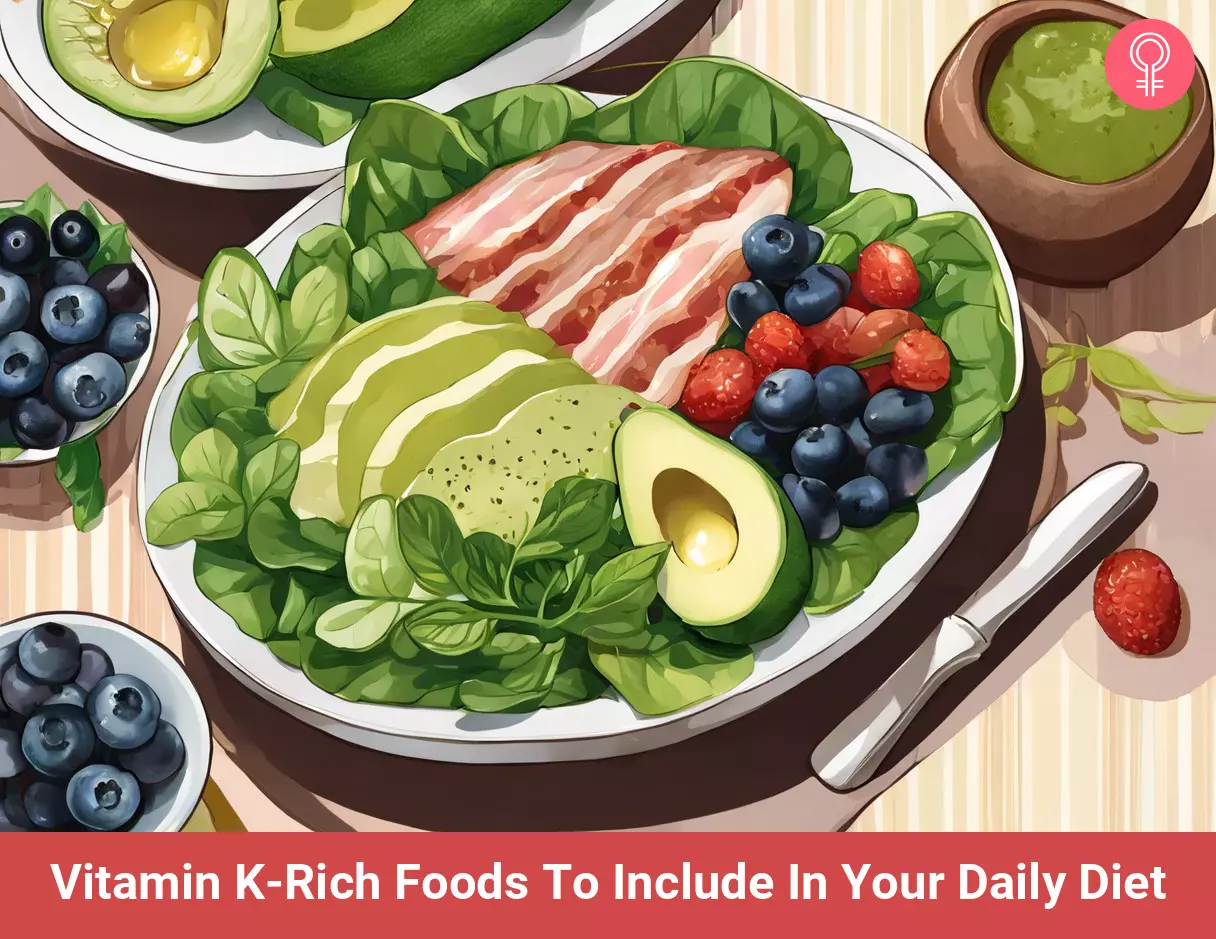
Image: Stable Diffusion/StyleCraze Design Team
Learn about the top vitamin K-rich foods that you must add to your diet for a balanced and delicious meal. Get the facts and start eating healthier today by watching the video below.
References
Articles on StyleCraze are backed by verified information from peer-reviewed and academic research papers, reputed organizations, research institutions, and medical associations to ensure accuracy and relevance. Read our editorial policy to learn more.
- “Vitamin K deficiency bleeding” Centers for Disease Control.
- “Intake of fermented soybean (natto)…”. US National Library of Medicine.
- “Osteocalcin: the vitamin K-dependent…”. US National Library of Medicine.
- “Vitamin K deficiency bleeding in infants…”. US National Library of Medicine.
- “Proper calcium use: Vitamin K2 as a promoter of…”. US National Library of Medicine.
- “Research progress on the anticancer effects of vitamin K2”. US National Library of Medicine.
- “Beneficial Effects of Vitamin K Status on Glycemic Regulation and Diabetes Mellitus: A Mini-Review
- “Treatment of a long-acting anticoagulant rodenticide poisoning cohort with vitamin K1 during the maintenance period”. US National Library of Medicine.
- “Vitamin K deficiency”. US National Library of Medicine.
- “Bananas, ripe and slightly ripe, raw”. National USDA
- “The Golden Egg: Nutritional Value…”. USDA
- “Carrots, raw”. USDA
- “Potatoes, flesh and skin, raw”. USDA
- “Nuts, coconut meat, raw”. USDA
- “Lemon, raw”. USDA
- “Papayas, raw”. USDA
Read full bio of Joel Kahn
Read full bio of Ravi Teja Tadimalla
Read full bio of Arshiya Syeda
Read full bio of Aparna Mallampalli






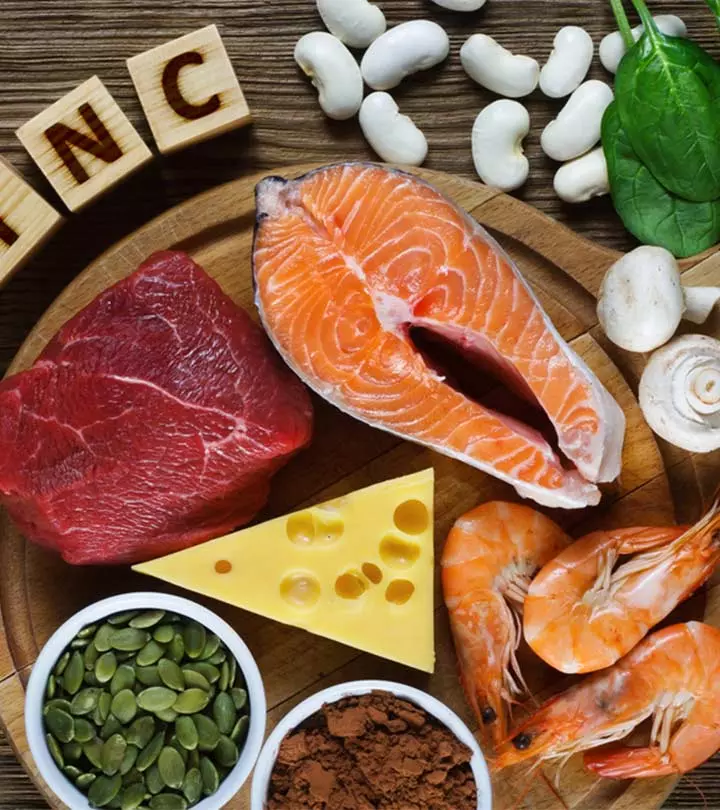
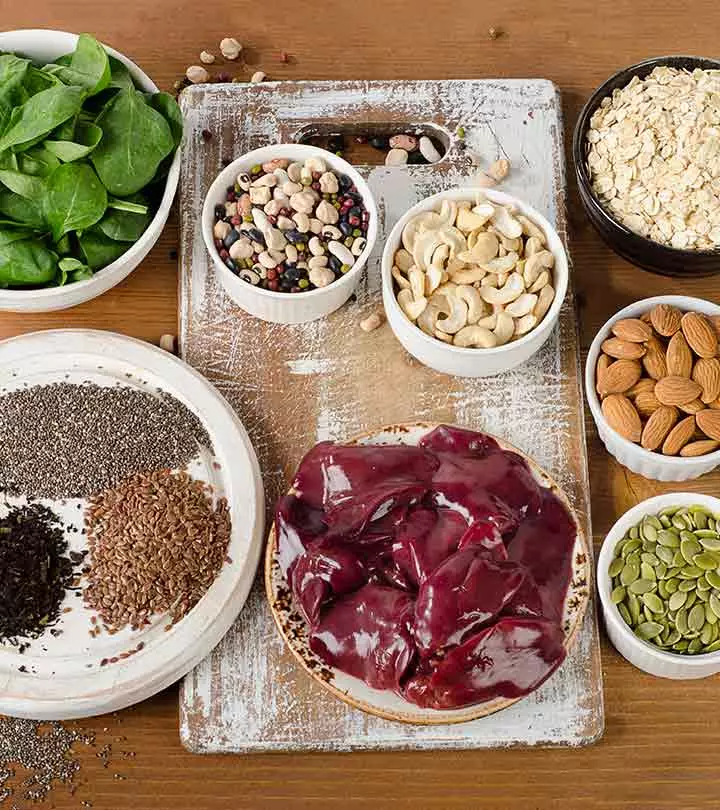
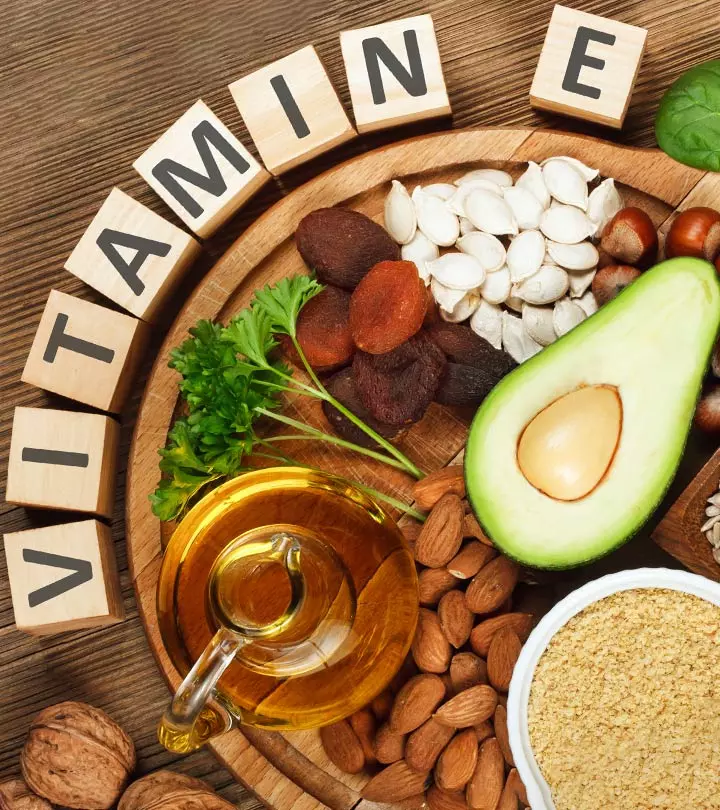
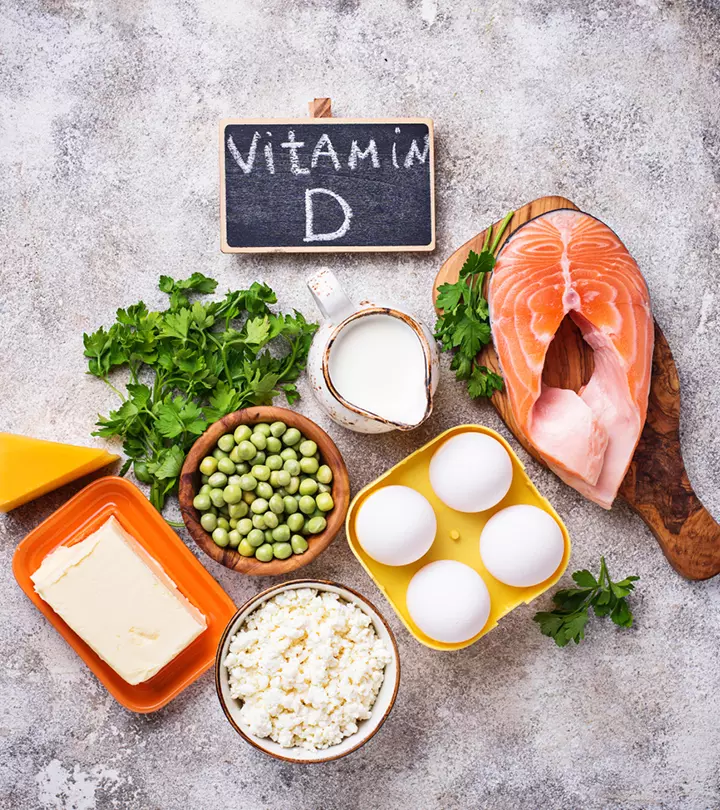
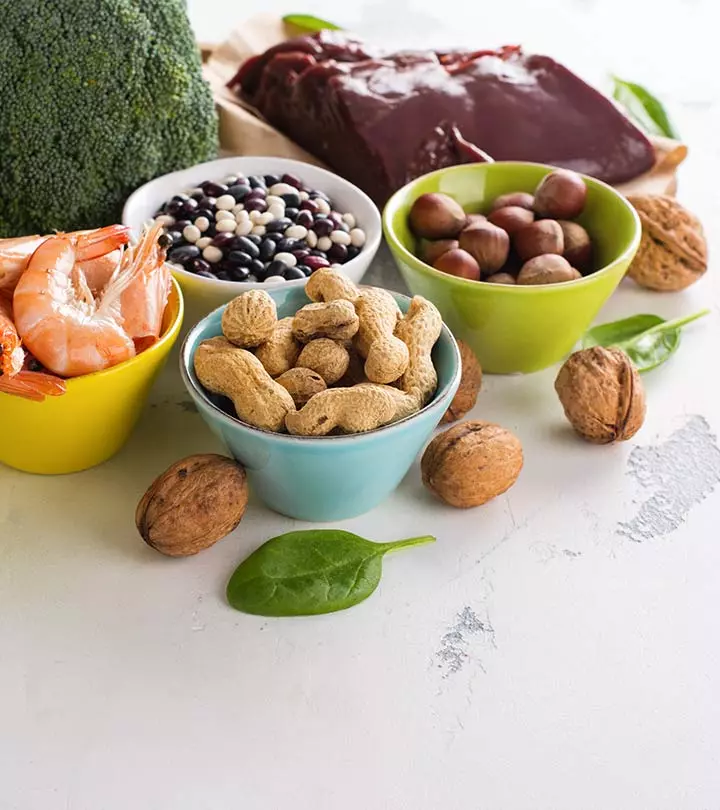
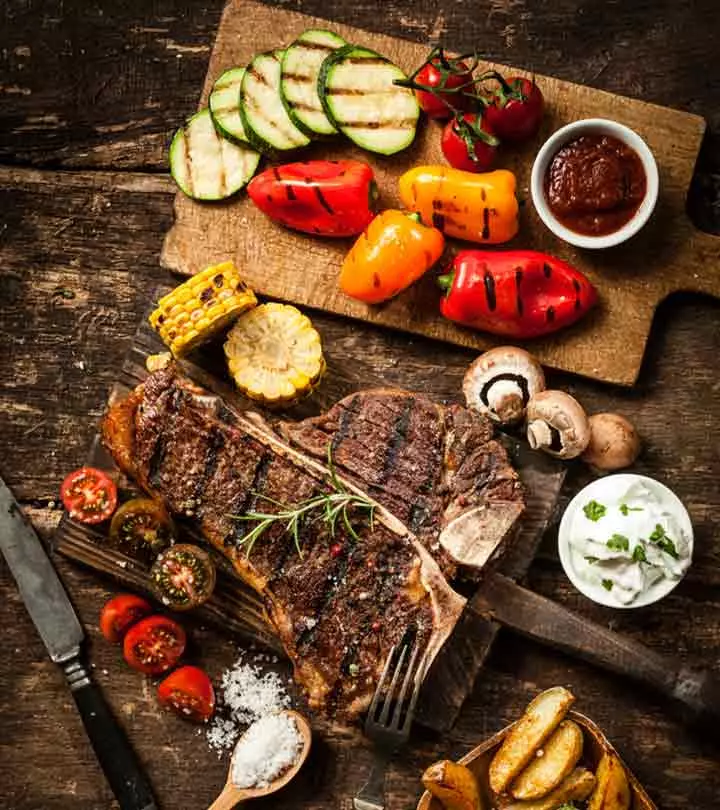
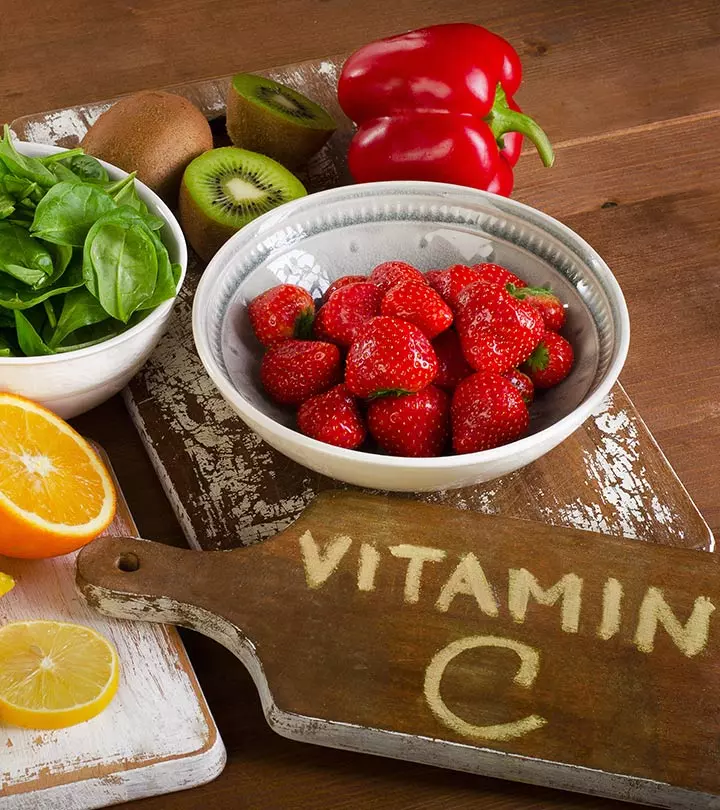
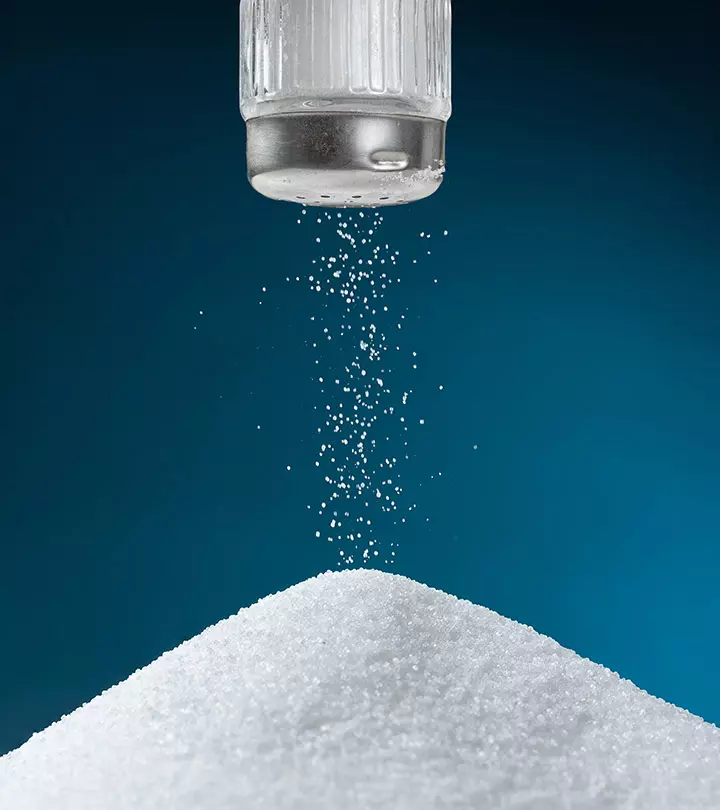
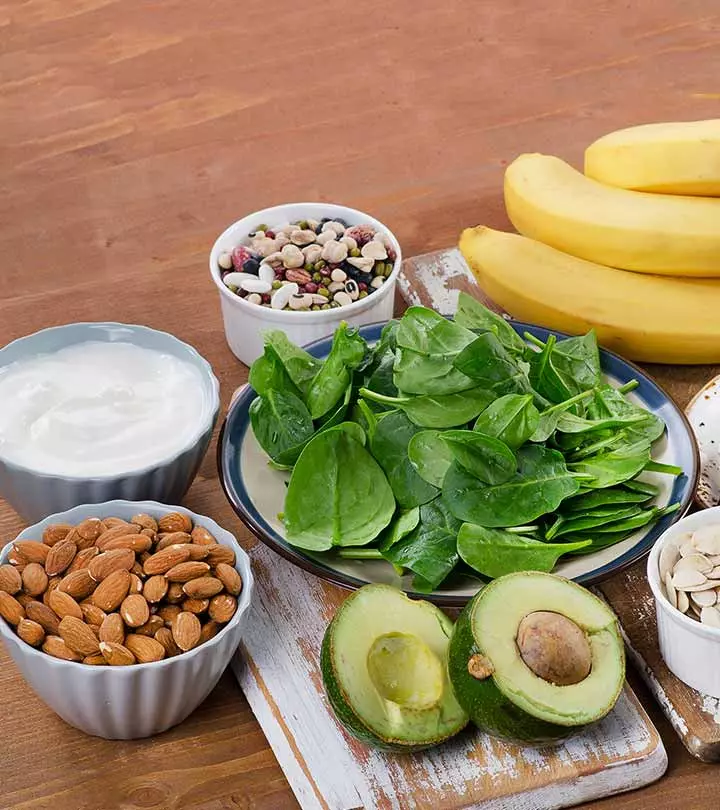
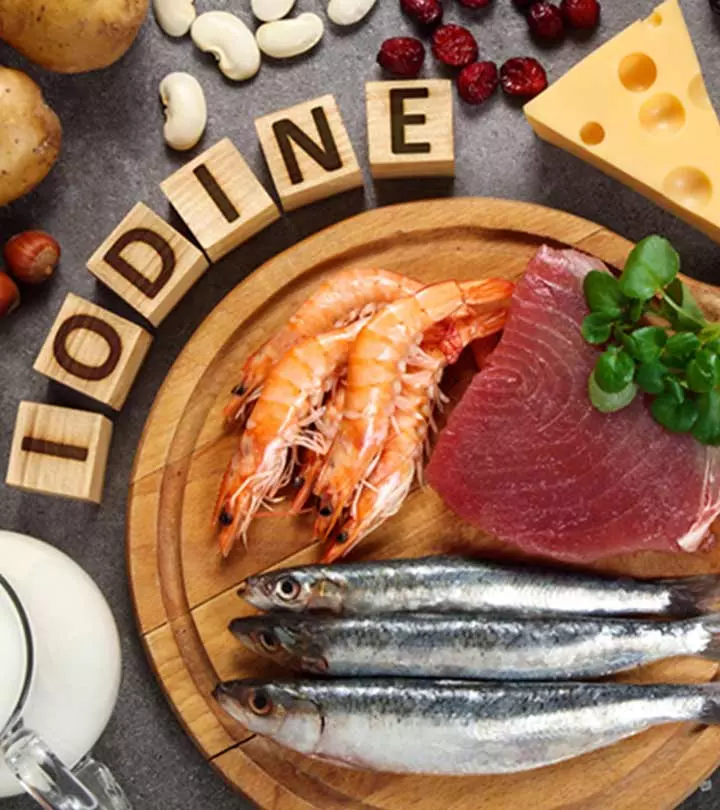
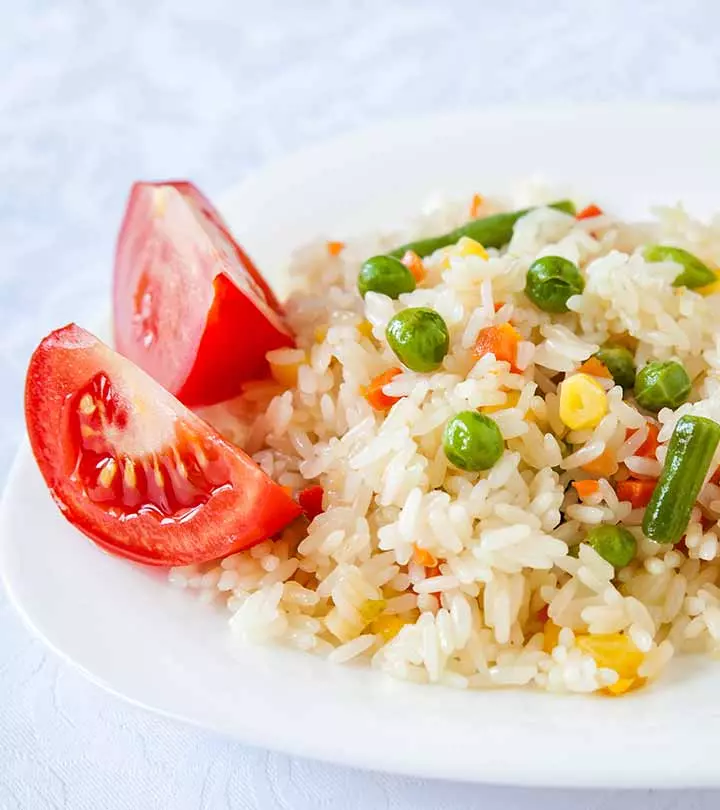
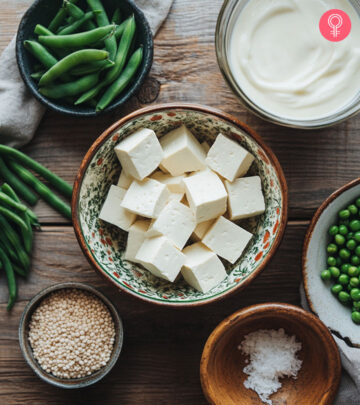
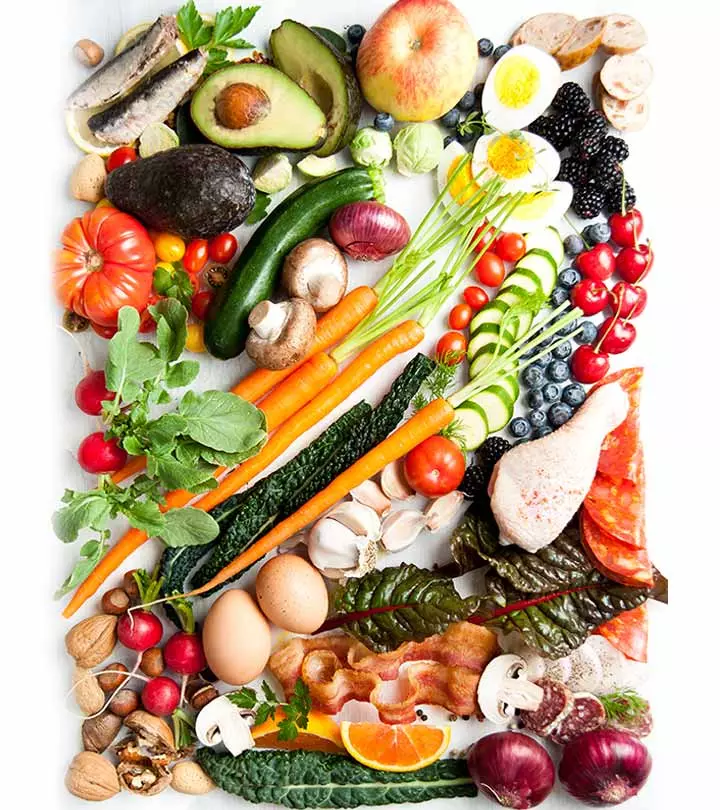
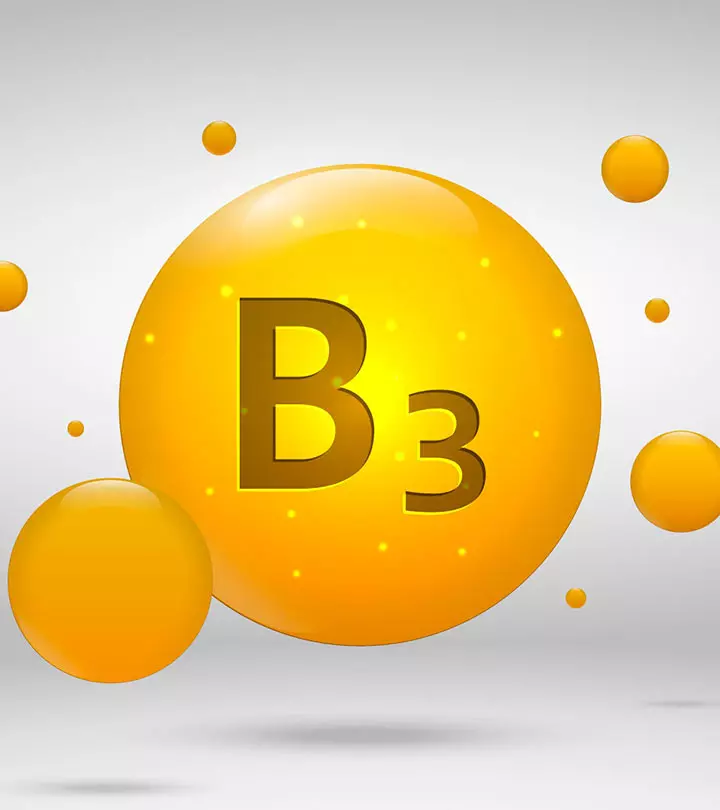
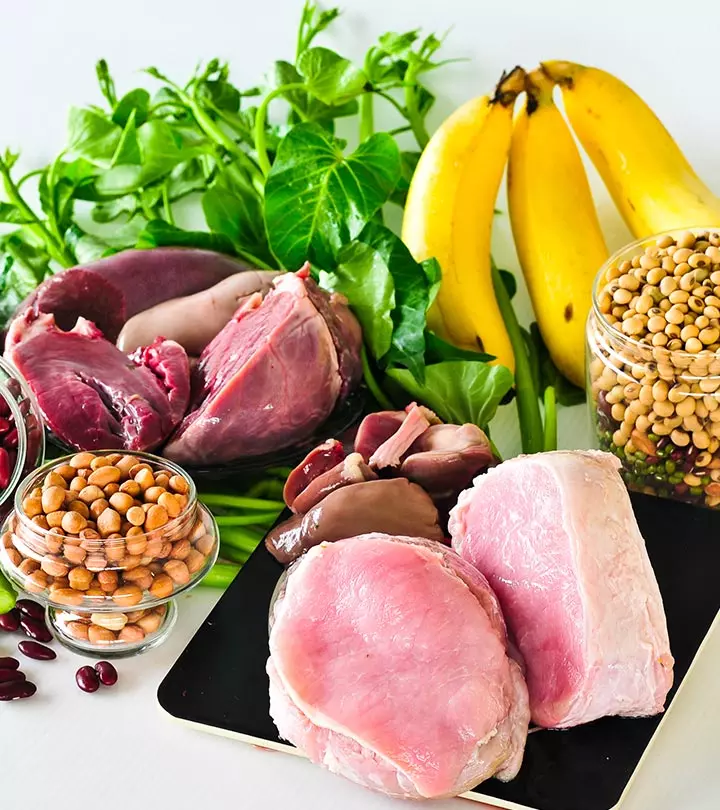
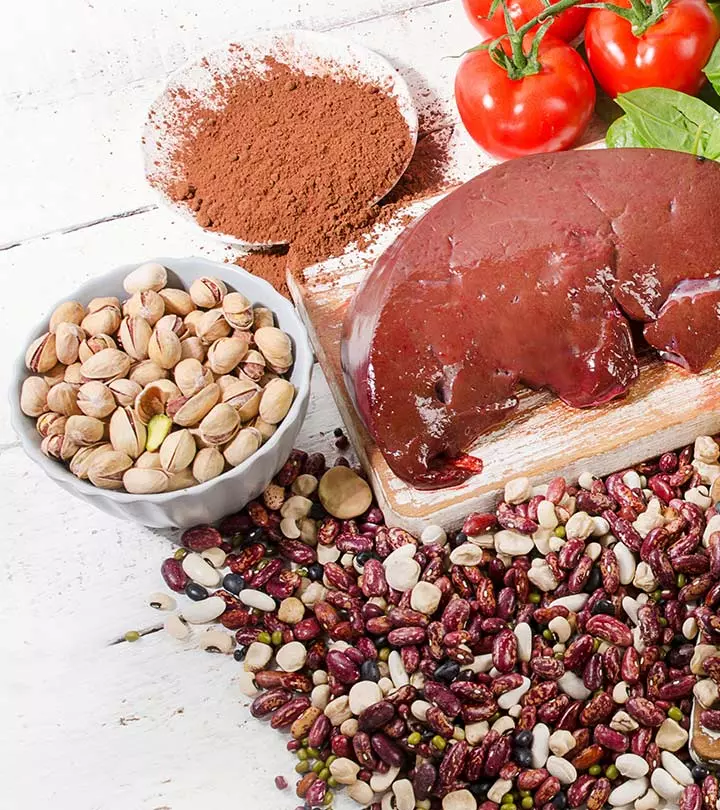

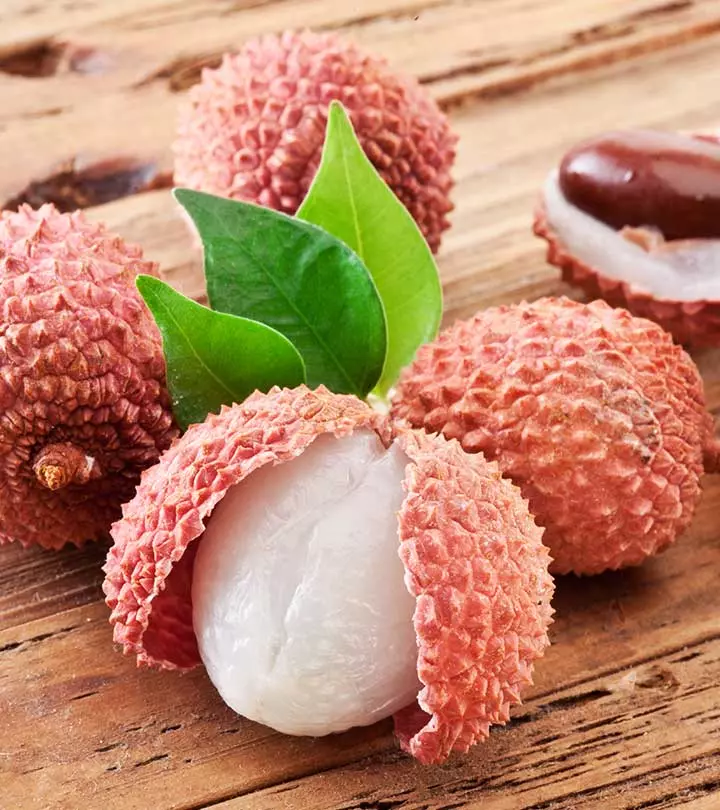
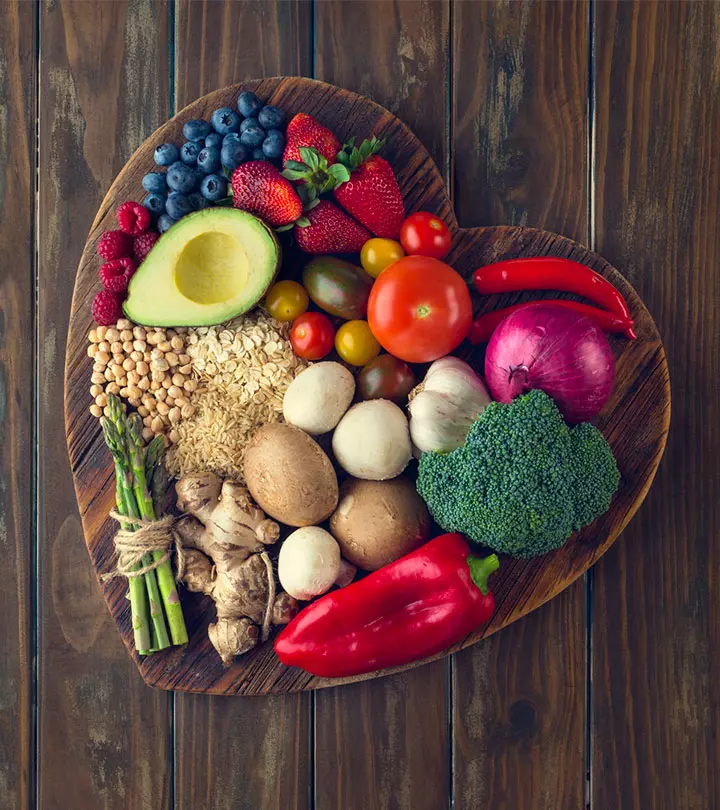
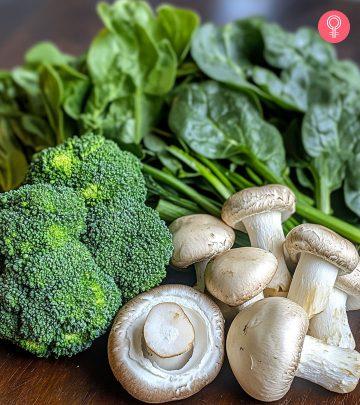
Community Experiences
Join the conversation and become a part of our empowering community! Share your stories, experiences, and insights to connect with other beauty, lifestyle, and health enthusiasts.